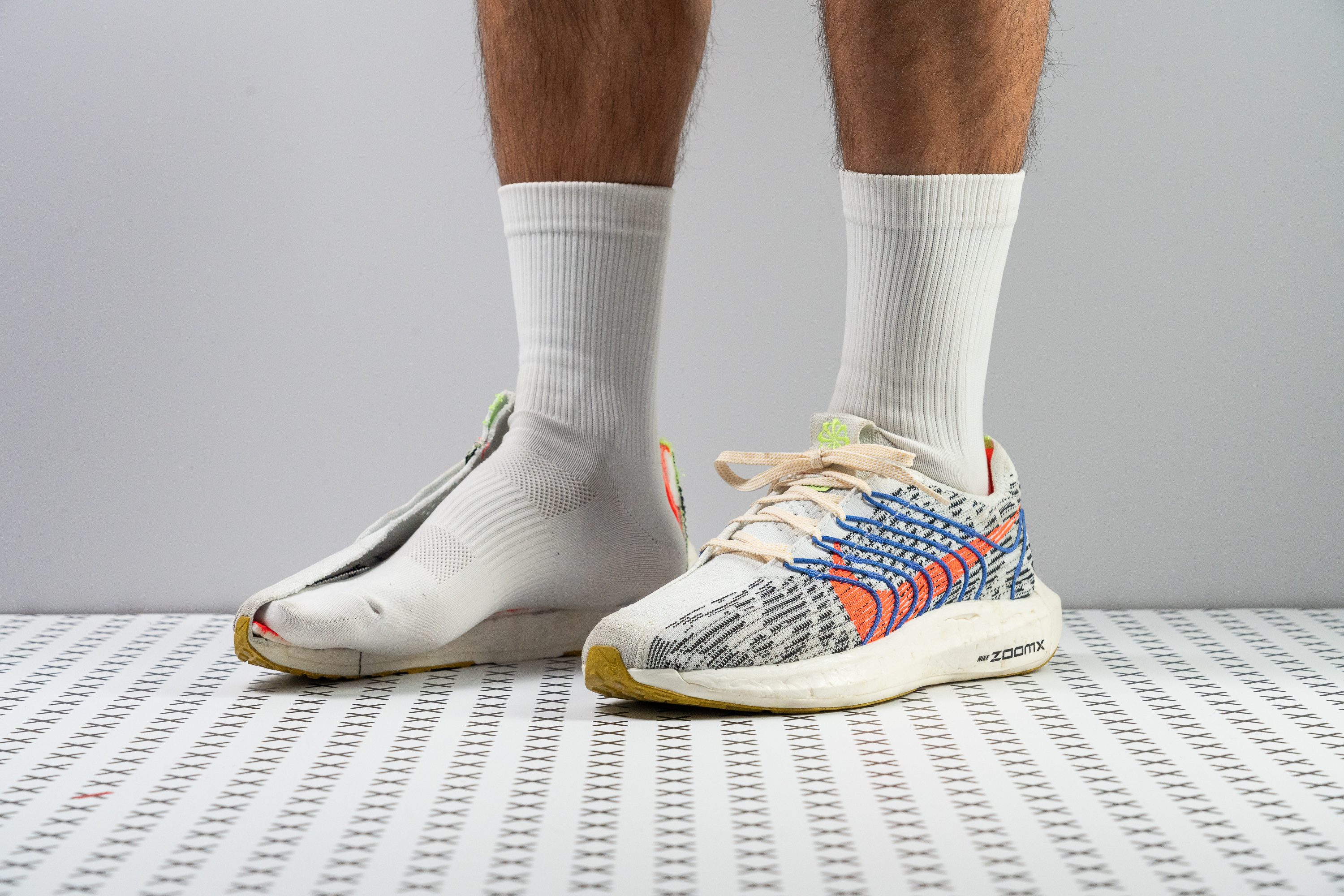Our verdict
Pros
- Excellent grip
- Smooth ride
- Great lockdown
- Stable
- Padded and supportive heel
- Durable outsole
- Aesthetically beautiful
- 50% recycled materials
Cons
- Lacks responsiveness
- Stiff and warm upper
- Laces are just too long
- Not the fast and nimble shoe that we expected
Audience verdict
Comparison
The most similar running shoes compared
+ + Add a shoe | |||||
|---|---|---|---|---|---|
| Audience score | 78 Decent! | 90 Superb! | 90 Superb! | 89 Great! | |
| Price | £150 | £165 | £110 | £140 | |
| Pace | Tempo | Daily runningTempo | Daily runningTempo | Daily runningTempo | |
| Shock absorption | - | Moderate | High | - | |
| Energy return | - | Moderate | Moderate | - | |
| Traction | - | Moderate | High | - | |
| Arch support | Neutral | Neutral | Neutral | Neutral | |
| Weight lab Weight brand | 9.7 oz / 275g 9.7 oz / 275g | 8.6 oz / 244g 8.6 oz / 244g | 8.6 oz / 245g 8.4 oz / 238g | 9.1 oz / 259g 7.5 oz / 214g | |
| Lightweight | ✗ | ✓ | ✓ | ✗ | |
| Drop lab Drop brand | 10.0 mm 10.0 mm | 9.4 mm 10.0 mm | 8.2 mm 9.0 mm | 11.2 mm 11.0 mm | |
| Strike pattern | HeelMid/forefoot | HeelMid/forefoot | HeelMid/forefoot | Heel | |
| Size | Slightly small | True to size | Half size small | Slightly small | |
| Midsole softness | Soft | Soft | Balanced | Balanced | |
| Difference in midsole softness in cold | Normal | Normal | Small | Small | |
| Toebox durability | - | Decent | Bad | Bad | |
| Heel padding durability | - | Good | Good | Bad | |
| Outsole durability | - | Decent | Decent | Good | |
| Breathability | Moderate | Moderate | Breathable | Moderate | |
| Width / fit | Narrow | Medium | Wide | Medium | |
| Toebox width | Narrow | Medium | Medium | Medium | |
| Stiffness | Stiff | Moderate | Moderate | Moderate | |
| Torsional rigidity | Moderate | Moderate | Moderate | Moderate | |
| Heel counter stiffness | Flexible | Stiff | Flexible | Flexible | |
| Heel lab Heel brand | 32.0 mm 32.0 mm | 33.0 mm 34.0 mm | 34.9 mm 35.0 mm | 33.8 mm 30.0 mm | |
| Forefoot lab Forefoot brand | 22.0 mm 22.0 mm | 23.6 mm 24.0 mm | 26.7 mm 26.0 mm | 22.6 mm 19.0 mm | |
| Widths available | Normal | Normal | NormalWide | NormalWide | |
| Orthotic friendly | ✓ | ✓ | ✓ | ✓ | |
| Season | All seasons | All seasons | SummerAll seasons | All seasons | |
| Removable insole | ✓ | ✓ | ✓ | ✓ | |
| Ranking | #346 Bottom 10% | #41 Top 11% | #45 Top 12% | #113 Top 30% | |
| Popularity | #205 Bottom 46% | #46 Top 12% | #182 Top 48% | #245 Bottom 36% |
Size and fit
Size
Nike Pegasus Turbo fits slightly small (29 votes).
Who should buy Nike Pegasus Turbo Next Nature
From our angle, get it if you need a reliable daily trainer with more pop than what’s the norm in these shoes. You will also appreciate this Pegasus if:
- you care about making less impact on the environment
- you like midsoles on the firmer side
- you are a more advanced runner
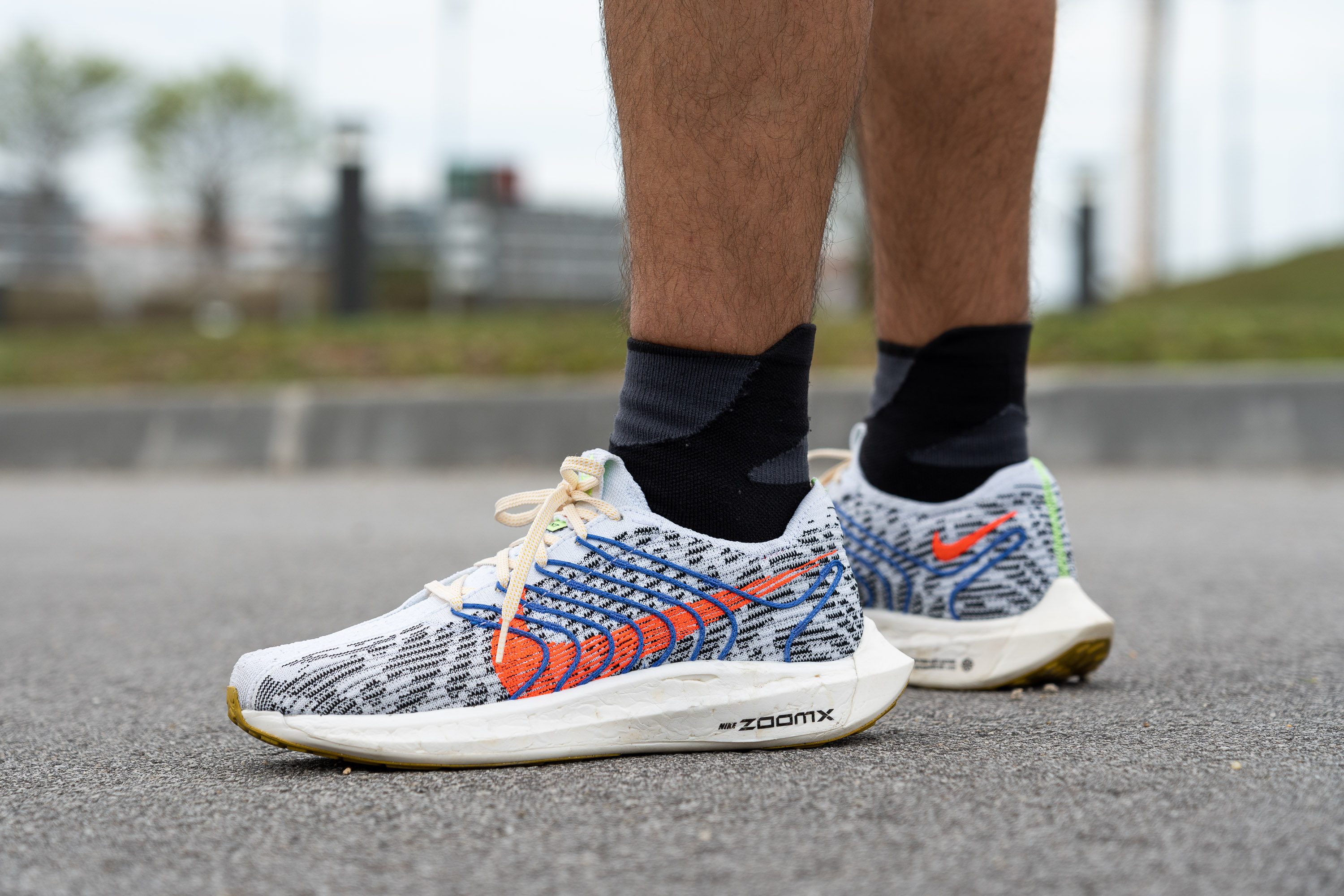
Who should not buy it
Do not go for this Turbo if you require a breathable shoe or if you prefer a plushier ride. In that scenario, the buttery-soft Nike Invincible Run 3 and the popular ASICS Novablast 3 are better options based on our lab results.
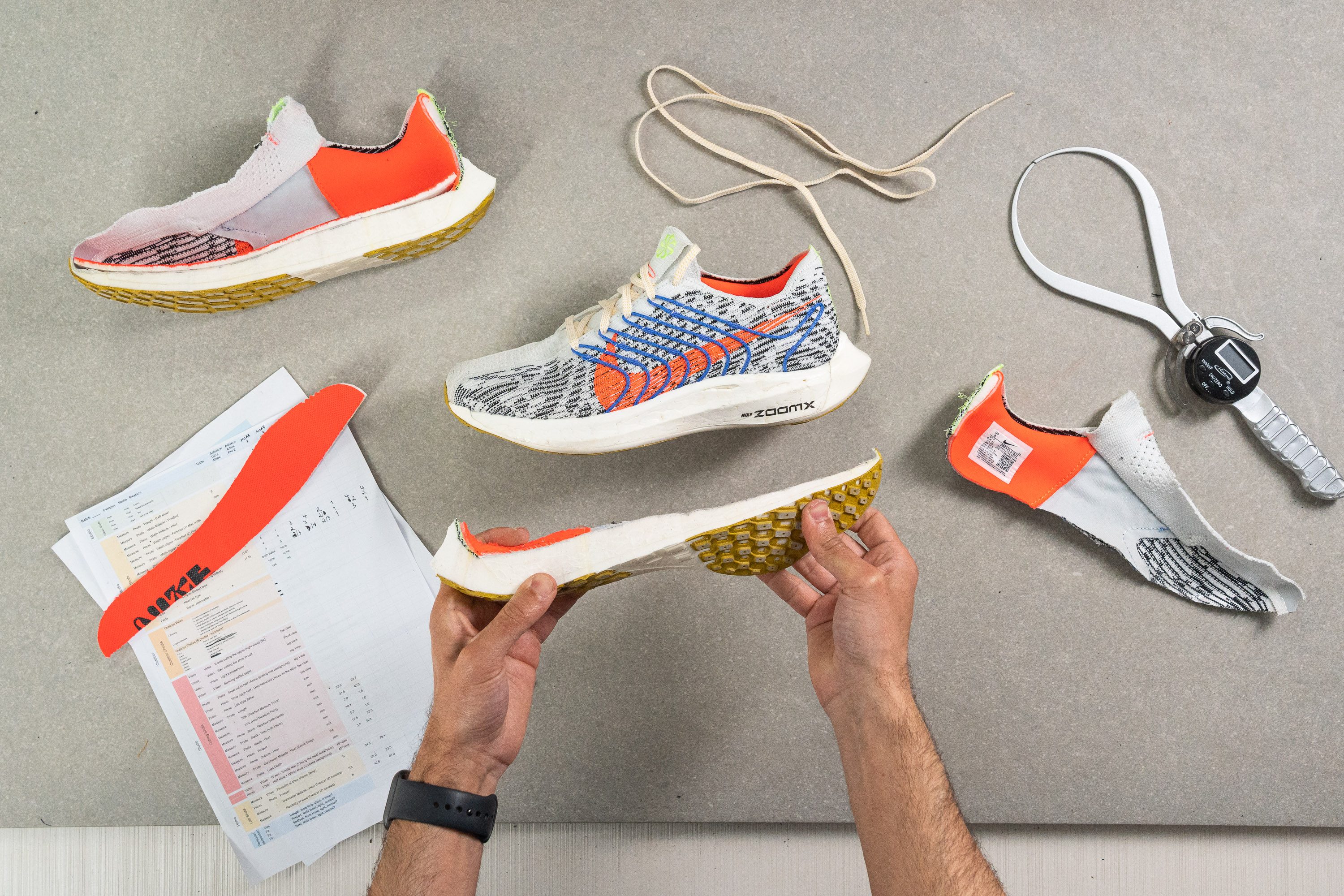
Not a summer shoe
The recycled Flyknit upper turned out to be somewhat stiff and thick, and not particularly breathable.
Testing its breathability in our lab, the shoe scored 3 out of 5 in our smoke test. While this rating is not the worst possible, it is still not sufficient to get our recommendation for use in hot temperatures.
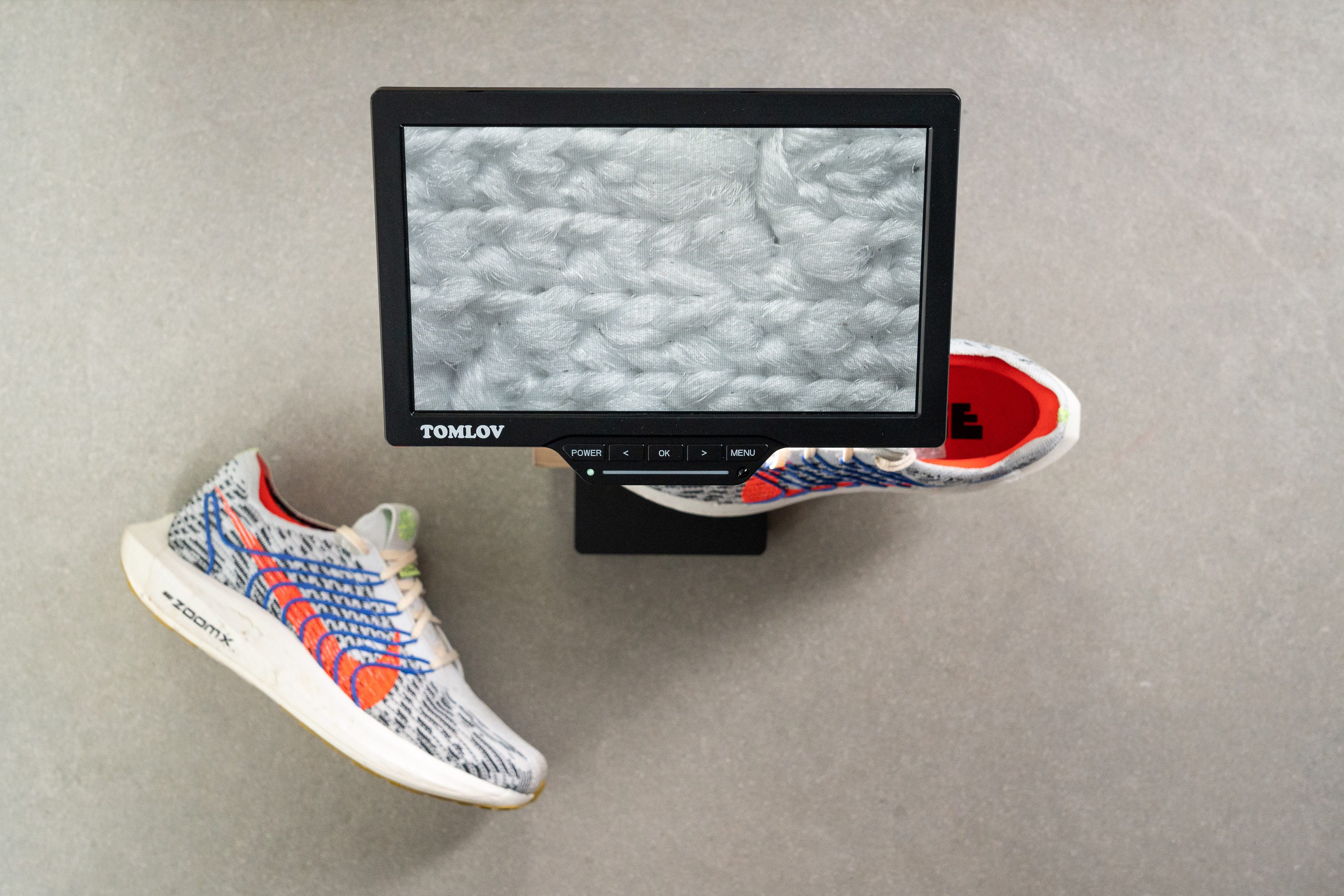
We felt as though the upper was thicker than it needed to be. The fact that it is among the densest we've ever seen was confirmed under our microscope.
The contrast between the two shoes is striking. It's true that knit uppers, such as the one found in the Turbo, tend to be less breathable than their mesh counterparts – a fact you can explore in our advanced guide to uppers.

If you require further evidence as to why you should avoid wearing this shoe during summer temperatures, this is what happens when our brilliant light comes in contact with the upper. As expected, it barely goes through it.
It's easier to observe the density of the Next Nature upper when comparing it to another daily trainer from Nike.
Great durability + all-round grip
We experienced no issues regarding the shoe's durability, which is always a plus for a daily trainer. While the upper seems strong, it’s underfoot that the shoe is even more resistant. We expect a standard 400-500 mile lifespan from the Turbo.
We are also happy to report that the shoe's grip is very reliable both on wet and dry surfaces and even on some light trails.
Measuring just 2.8 mm thick, this outsole provides impressive traction despite being 0.6 mm thinner than the average road shoe. The unique lug pattern and grippy rubber make this one a rarity among Nike road running shoes!
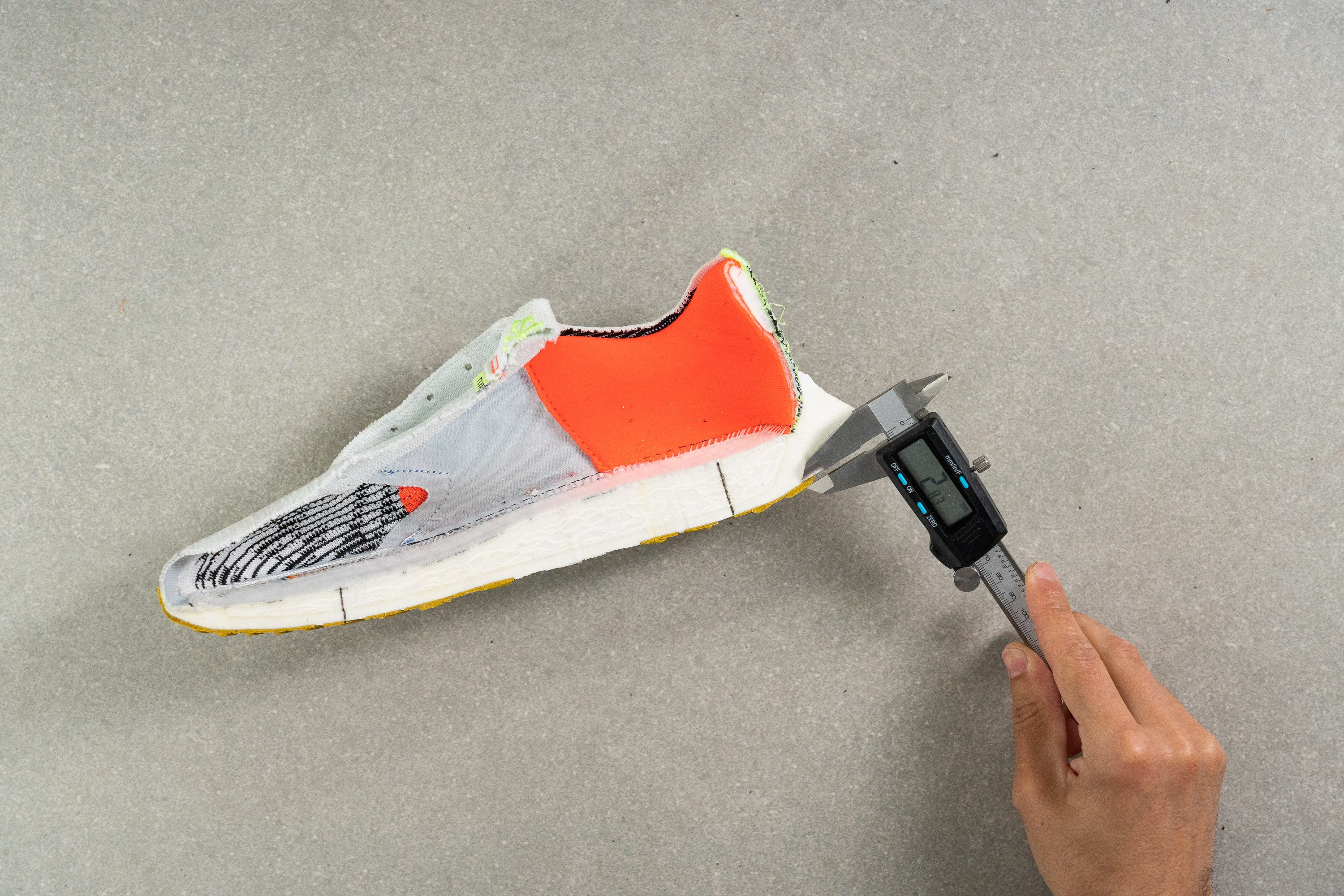
The midsole is not what everybody anticipated
The Pegasus Turbo's cushioning is tricky. Based on our durometer measurement (11 HA), the Turbo turns out to be 16% softer than Nike's super plush Invincible 3.
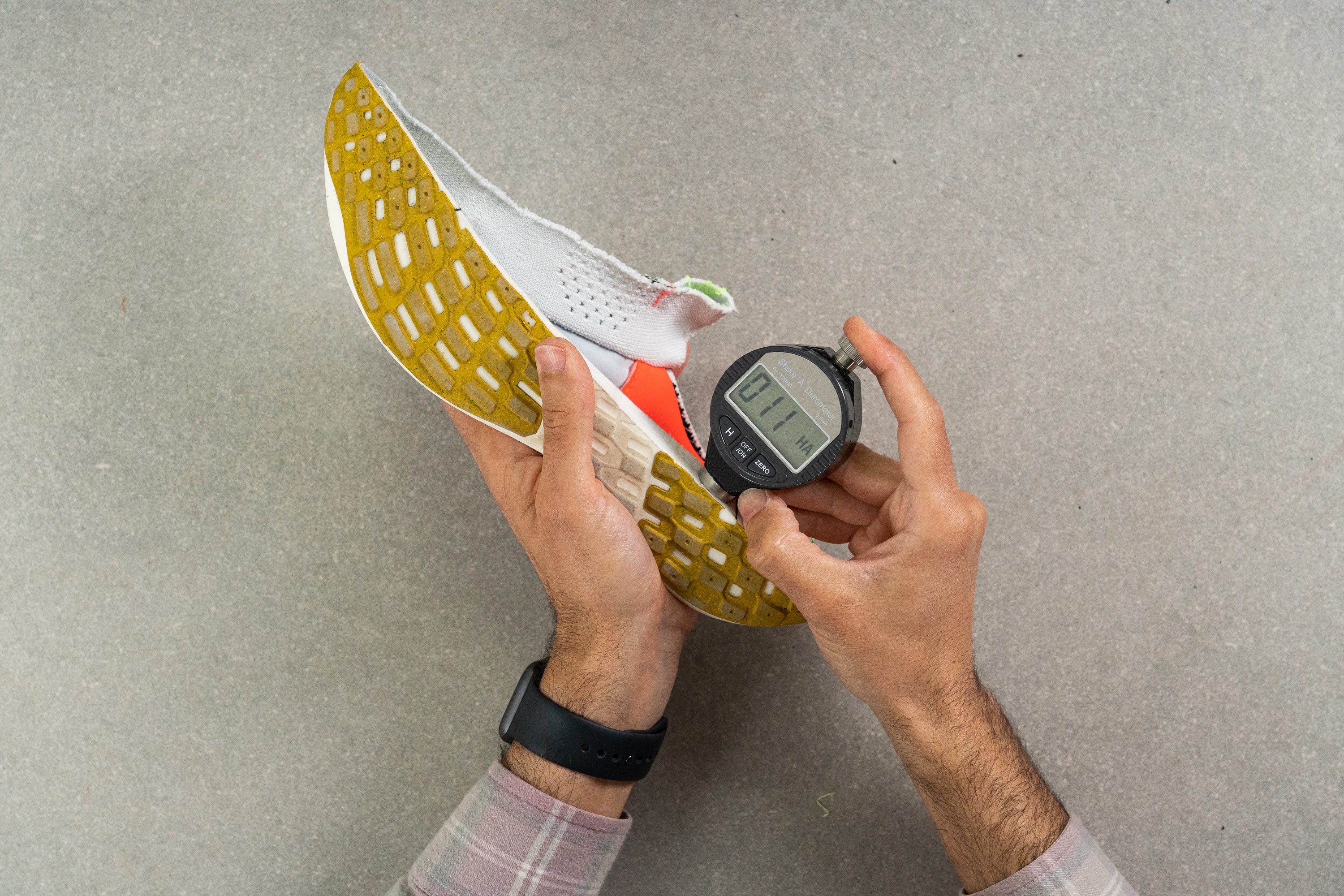
However, on the actual run, we felt as though this Nike shoe ran a little... firm? This must be due to the fact that the shoe features a hard-and-dense EVA foam named SR-02 which protects the softer PEBA-based recycled ZoomX foam.
That's why we were underwhelmed when putting the Pegasus Turbo on for the first time. It was supposed to be a plush, energised ride but it just failed to meet our expectations.
The midsole hardens up a lot in winter...
You already know that the midsole is firmer than we all expected. But what happens when this shoe faces colder temperatures? For sure, it'd be a letdown if it gets even more rigid in cold conditions.
The Pegasus Turbo's recycled ZoomX foam stiffens an astonishing 39.5% after just 20 minutes in the freezer. That's a bit too much considering that the average is just 26.9%.
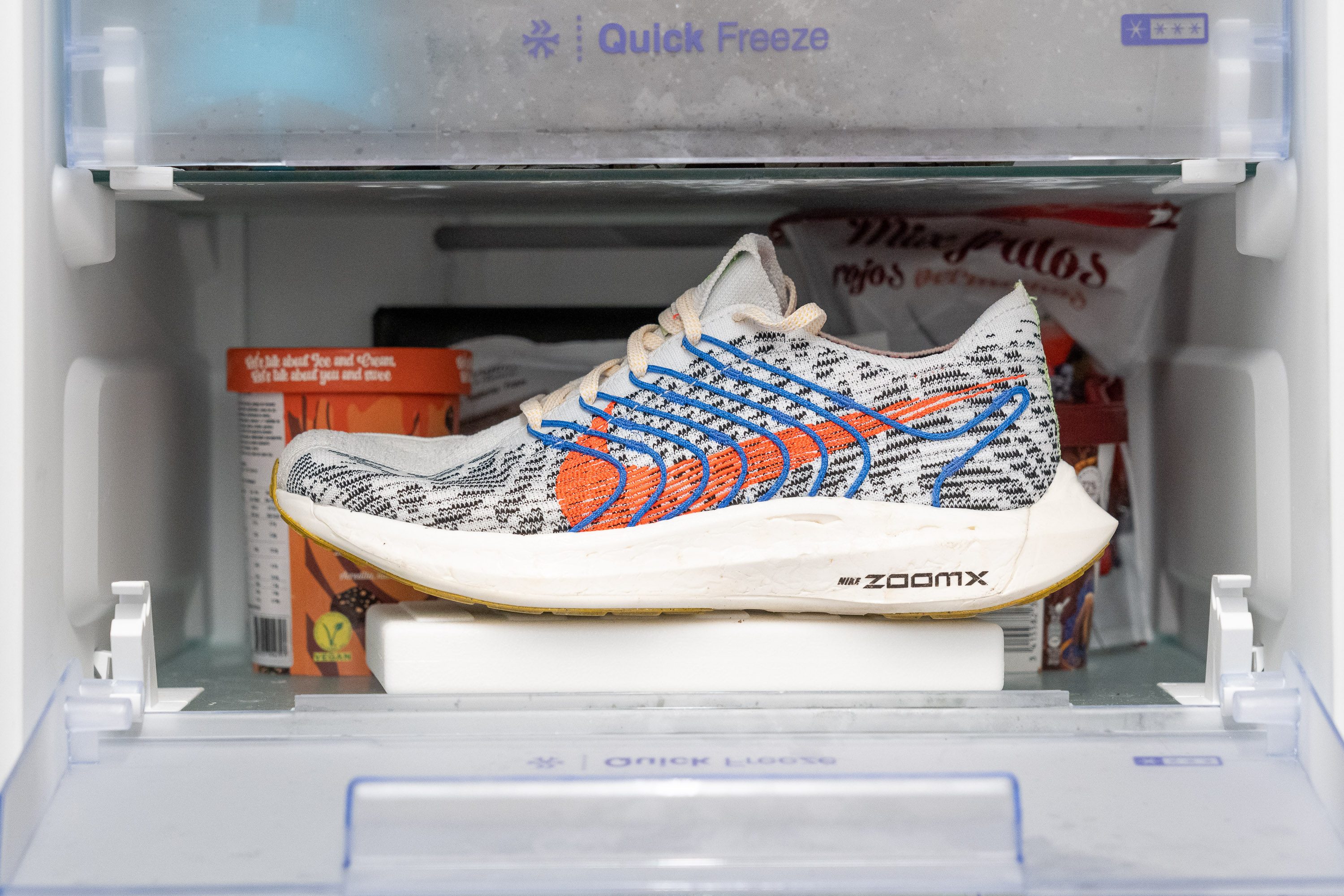
It's not all bad news, as the Turbo Next Nature doesn't become overly rigid in cold temperatures. With a modest 12.6% increase in stiffness, it's less than a third as firm as the average shoe.
And it's not only a winter thing because this Pegasus leaves in the dust most training shoes in flexibility. Impressively, it's 8.8% less firm than the Nike ZoomX Invincible Run 2!
The incredible flexibility of the Turbo Next Nature makes it an excellent versatile running shoe. Learn more about this topic in our flexible vs. stiff guide.
Unsurprising stack height and drop
Like other Nike trainers, Pegasus Turbo Next Nature is no exception to having high drops. According to Nike, this shoe features a 10 mm drop, boasting 32 mm in the heel and 22 mm in the forefoot. That's pretty close to the average stack height, which is 33.2 mm in the heel and 24.5 mm in the forefoot.
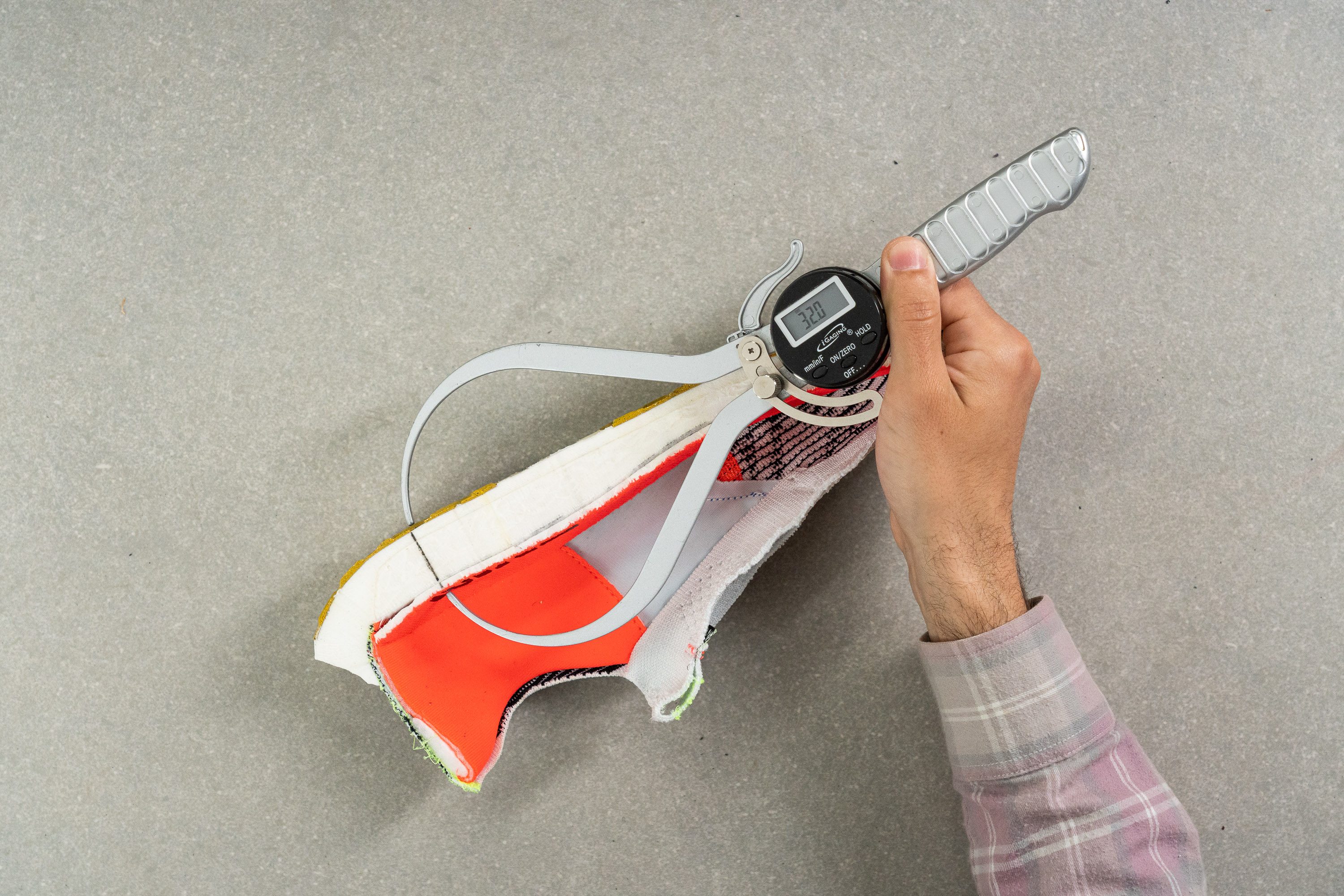
Our measurements match Nike's claims: a 10 mm drop, 32 mm in the heel, and 22 mm in the forefoot. Naturally, we double-checked our results, as this level of accuracy is exceptionally rare!
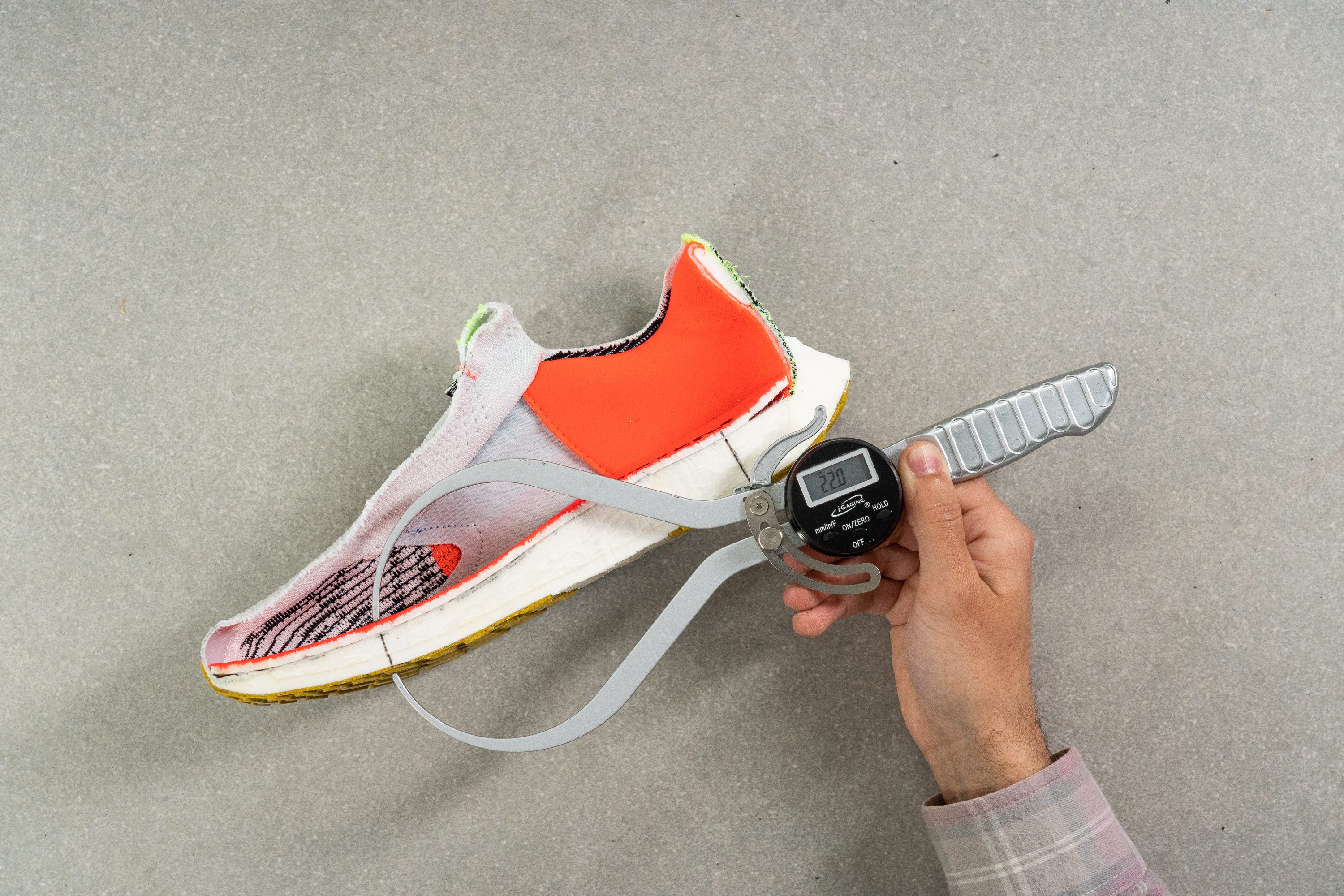
A good running shoe for short-distance training
Trying to figure out the shoe's purpose, we believe that the Turbo Next Nature feels best when running short workouts at moderate paces. That’s your easy or aerobic 10K run, for example.
For long runs, it has an average stack height that probably won’t be enough to protect your muscles over so many miles. It also lacks any rocker to propel you forward when the legs are super-tired.
A shoe that hugs your feet
The sides of the shoe are wrapped in Flywire cables, which provide a great midfoot lockdown.
The same goes for the rearfoot, where the heel cup holds the foot very securely. We rated the Turbo's heel counter stiffness as 2 out of 5 in our manual test. The sum of a not-so-stiff heel counter and a snug, padded collar provides a perfect balance between great lockdown and nice comfort.
To enhance the lockdown even further, the Pegasus Turbo has a very thin tongue that's connected to the sides from top to bottom. So it creates a perfect fit and makes it a great choice for light trails, as the full gusseted tongue will avoid small rocks or debris from entering the shoe.
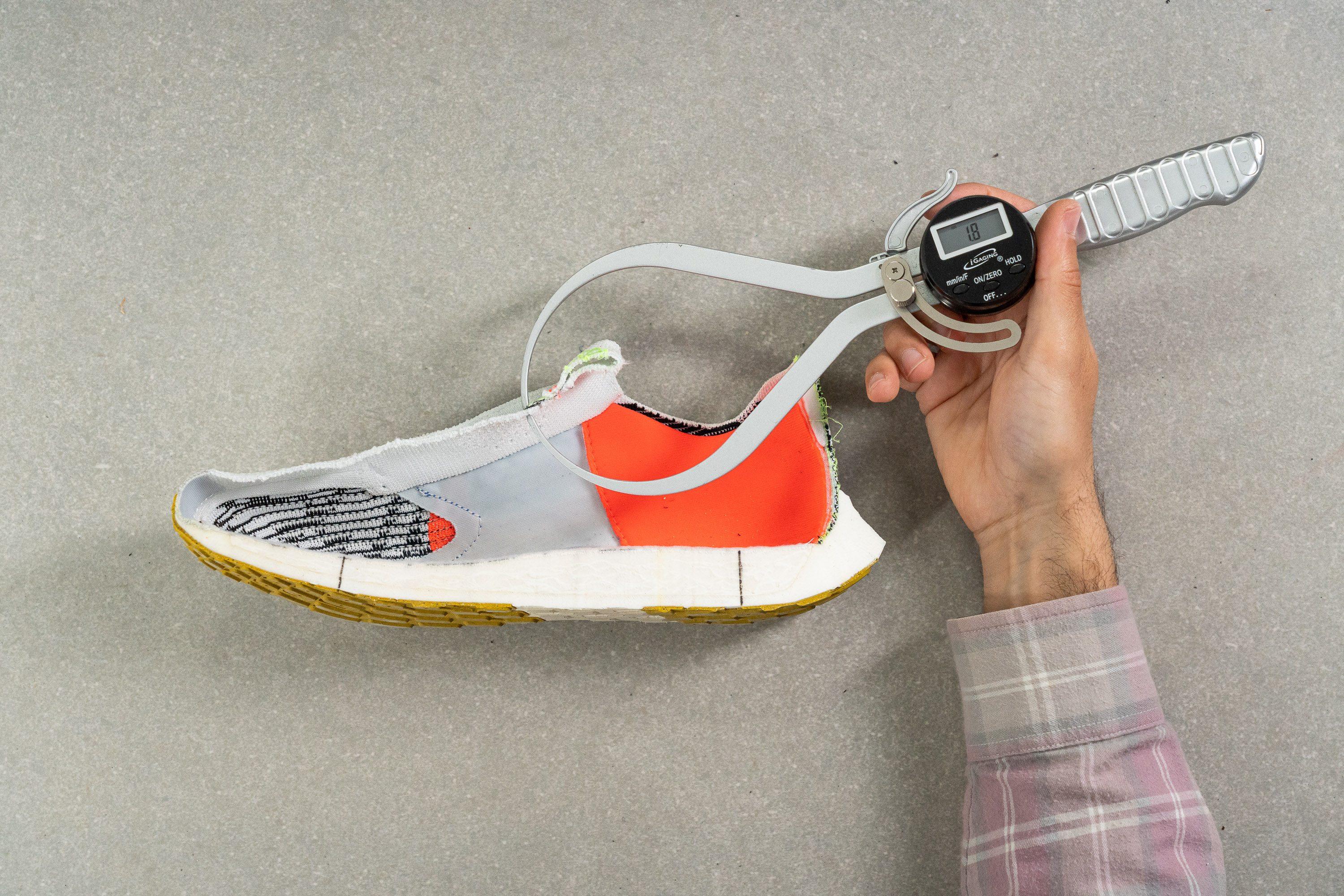
The Nike Pegasus Turbo Next Nature does not wobble
Another aspect that we really appreciated was the fact that the shoe felt stable. It performed ok when running at a slower pace, and much better during moderate-paced efforts.
Not wide at all
Rather than taking only a single measurement in the toe box, we choose to make two: one at the widest part and another at the spot where the big toe sits. This method provides a more dependable way to understand how the shoe adapts to the foot shape in the toe box area.
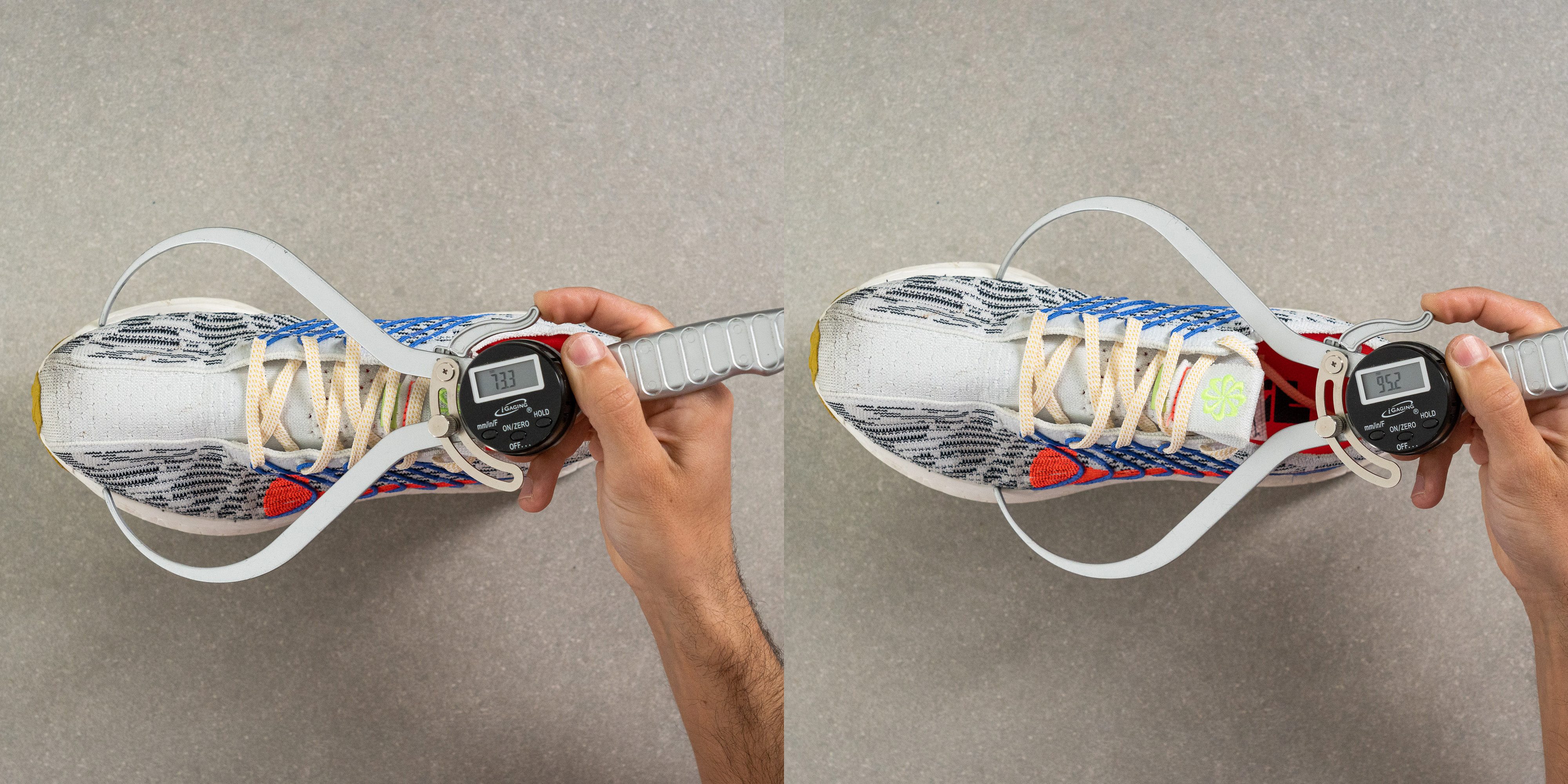
Our measurements of 95.2 mm at the widest section and 73.3 mm for the big toe reveal that this shoe has a standard or slightly narrow width.
Wide footers may want to consider the Nike Pegasus 40 which is available in wide.
Endless laces
With running shoes, it can happen that the laces are too short, but the opposite can occur too, as in this case. We found the Turbo's laces to be ridiculously long.
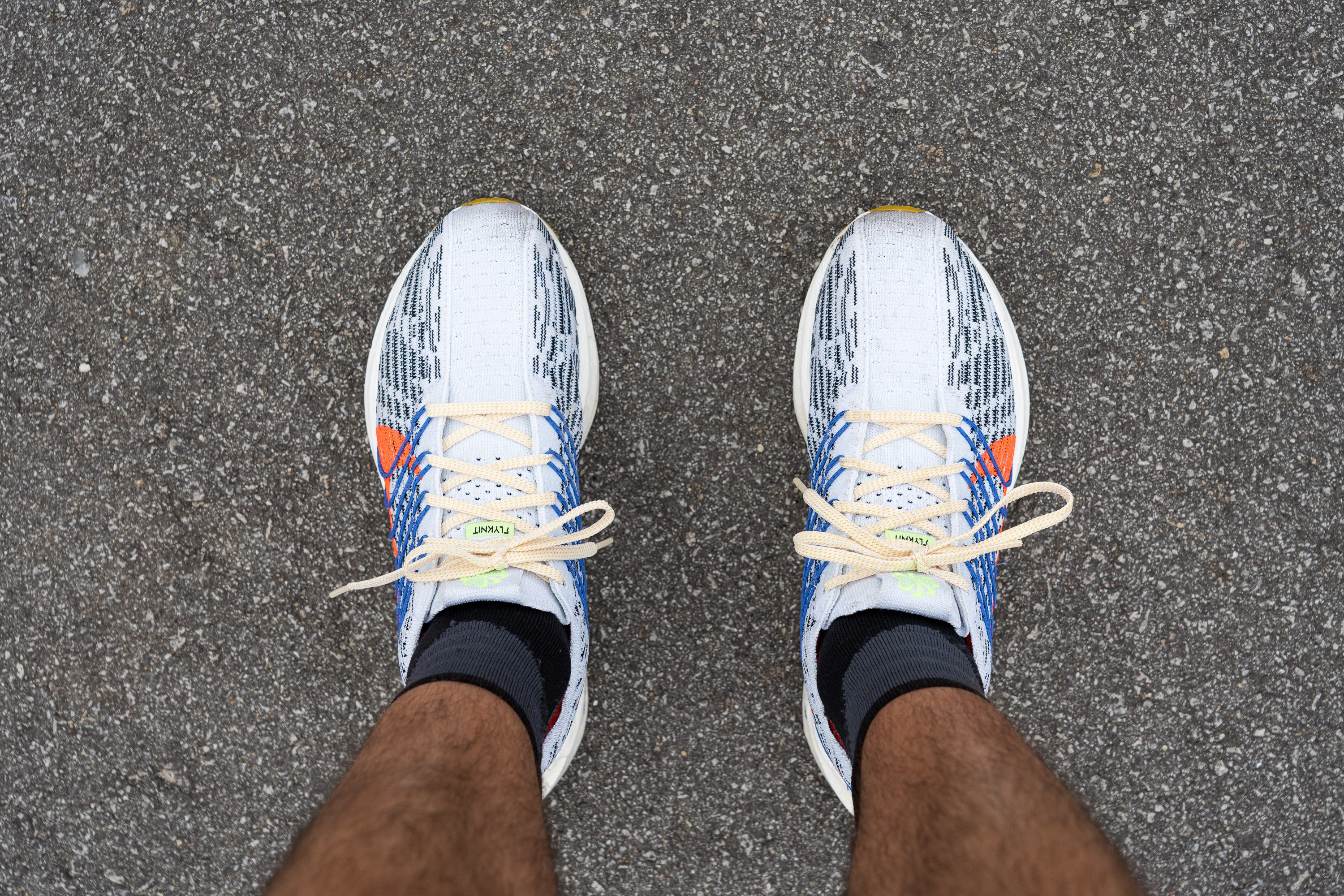
Standard landing platform
Numbers don't lie. With a forefoot that's a mere 1% smaller than the average road running shoe and 2% more spacious than the wildly popular Pegasus 39, this is a shoe that clearly pleases everyone.
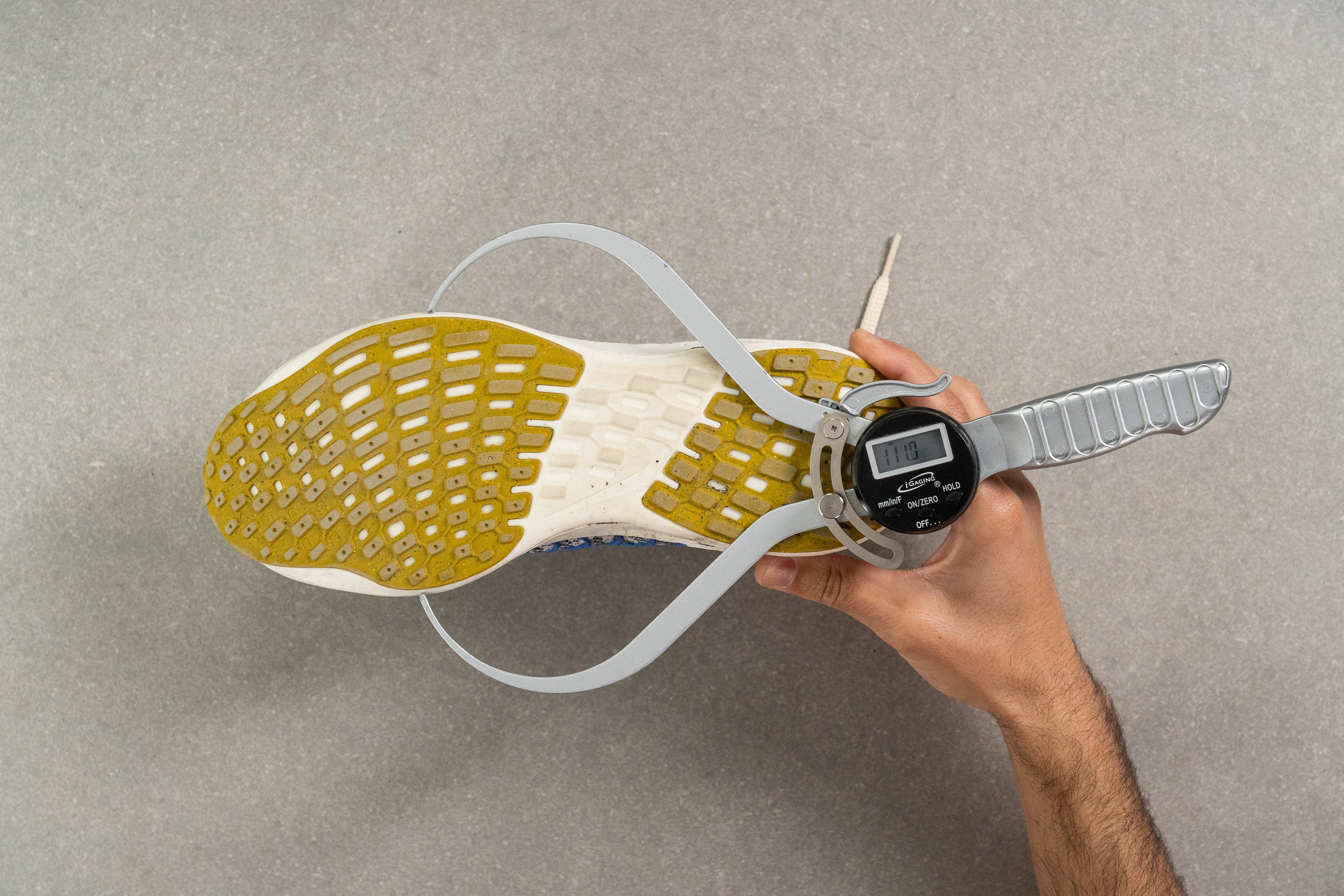
A similar situation occurs in the heel. We recorded a measurement of 84.1 mm, which is only 0.9 mm broader than the Pegasus 39 and totally unnoticeable even for a heel striker.
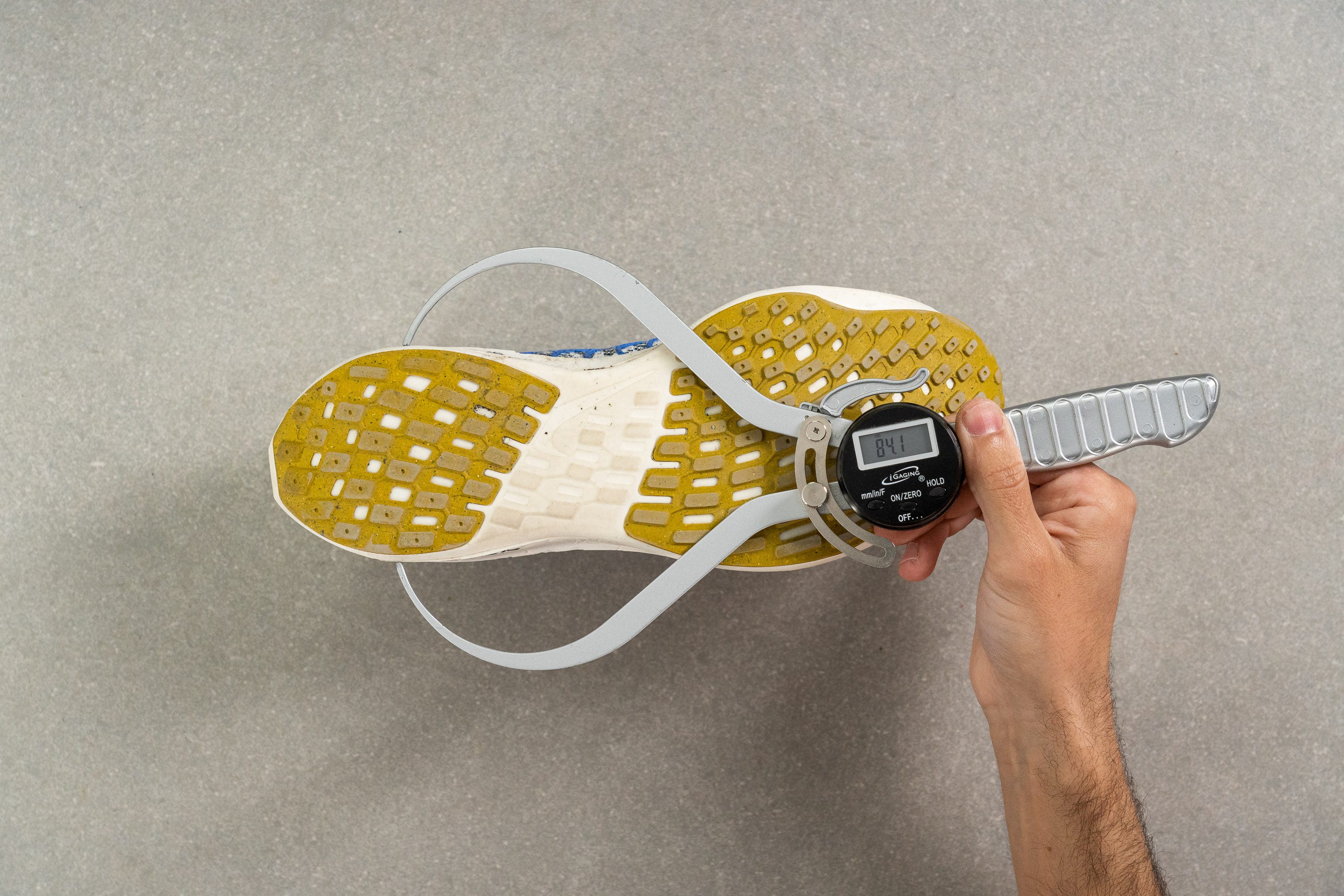
Dude, where’s my... pull tab?
Putting on these shoes can be a struggle! Yet, once the feet are in, it’s very enjoyable, especially due to the padding in the heel which felt extremely comfortable around our ankles.
The Turbo Next Nature lacks the beloved finger-loop pull tab that we can enjoy in other Nike models like the Alphafly Next% 2.
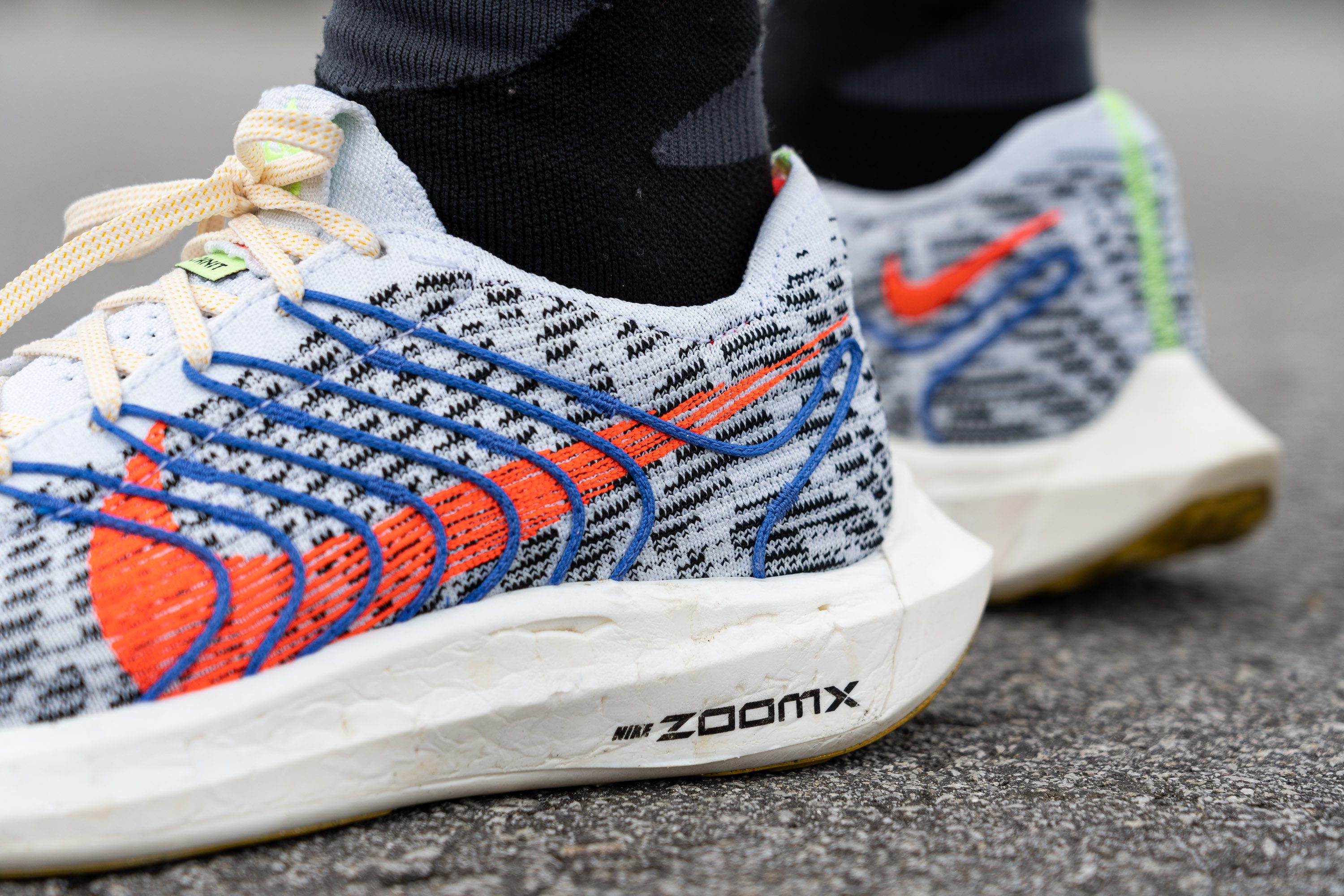
Turbo Next Nature is good-looking
Whether it’s the black or the white version, its look makes it feel like a lifestyle sneaker.
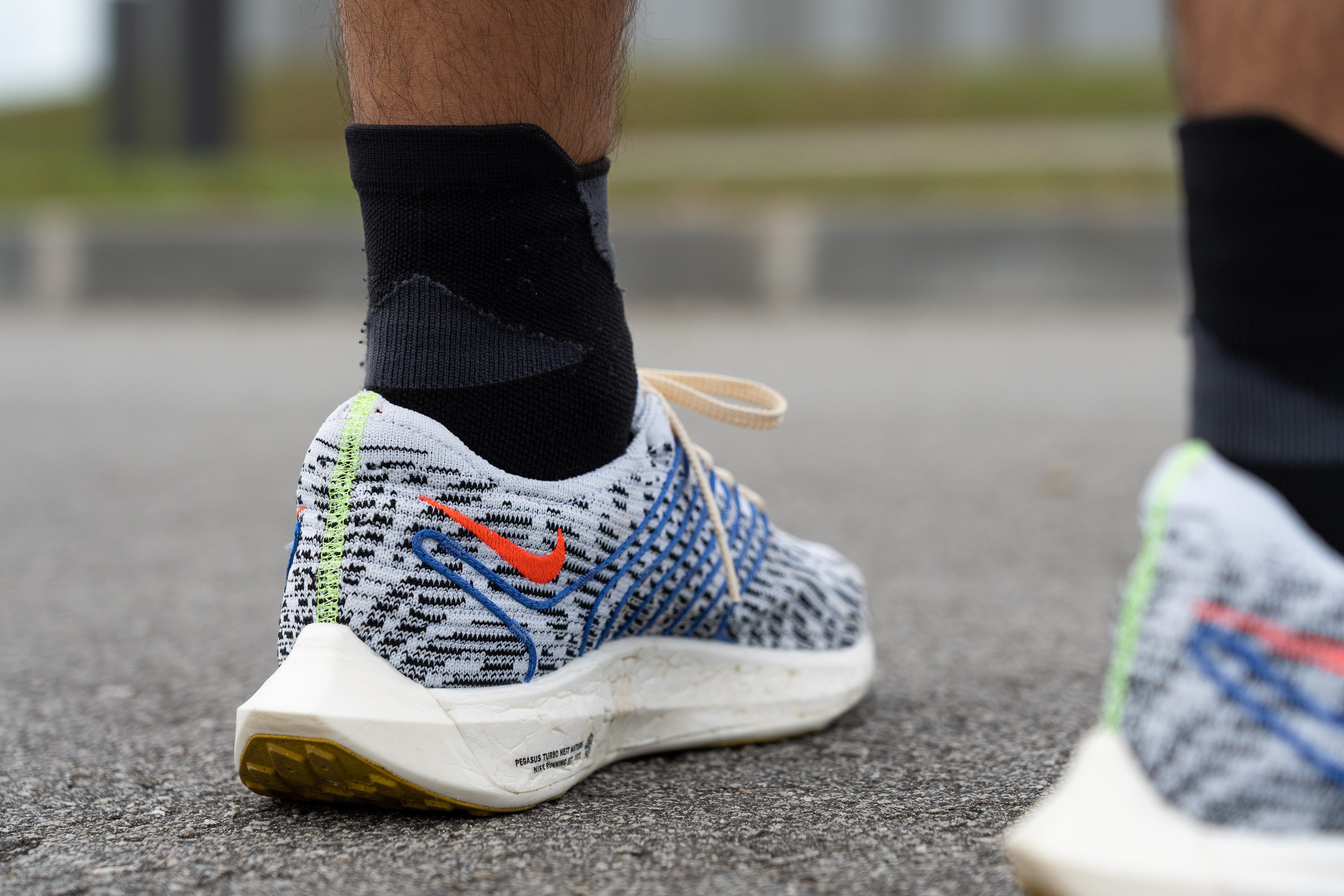
One thing is for sure: this shoe is really different from its predecessors with its risky design. However, the iconic signature line from the original Pegasus Turbo still runs boldly across the centre of the shoe, and we just love it.
A bit expensive, but for a good cause
At £150 this Nike running shoe is not one of the cheapest. However, considering that it’s made with a good amount of recycled materials, its price does not sound too exaggerated.
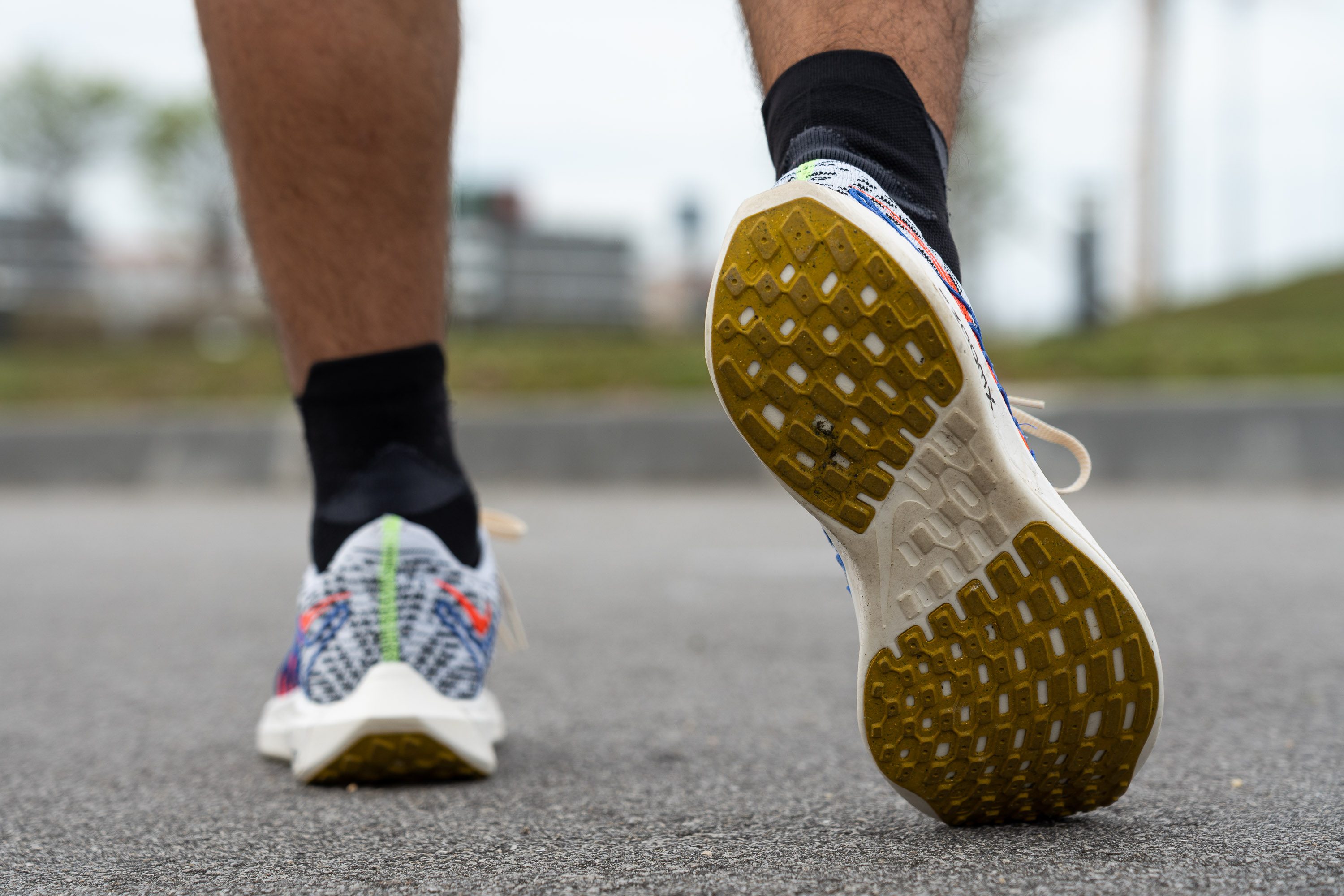
A regular Nike Pegasus 39 costs 15% less than this Turbo Next Nature.

